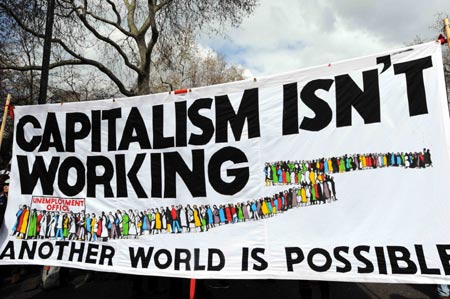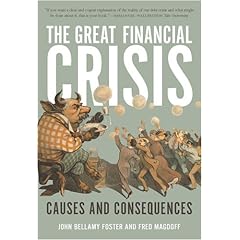capitalism
Fourth International: Draft report on climate change
By Daniel Tanuro
Below is a reworked version of the report on climate change and climate campaigns, drafted by Daniel Tanuro and presented at February 2009 meeting of the International Committee (IC) of the Fourth International. This report has been adopted as the basis of a resolution to be written for the coming Fourth International world congress. This first appeared on the International Viewpoint website.
I. THE CLIMATIC THREAT: CAUSES, RESPONSIBILITIES, SOCIAL AND ECOLOGICAL IMPACTS
1. Climate change is a fact without precedent
Climate change is a fact. In the 20th century, the average temperature of the surface of the Earth increased by 0.6°C, the sea level went up from between 10 and 20 cm, glaciers retreated almost everywhere in significant proportions, the violence of cyclones increased in the North Atlantic, and more extreme weather phenomena, such as storms, floods and droughts, were recorded.
Atilio Borón: From infinite war to infinite crisis

By Atilio Borón[*], translated by Machetera, Scott Campbell, Christine Lewis Carroll and Manuel Talens
March 25, 2009 -- Machetera/Tlaxcala -- Some thoughts on the current capitalist crisis, its probable “solutions” and the role that a socialist option might play in the present juncture.

Stop press April 2
George Monbiot: G20 protests: Riot police, or rioting police?
At the G20 protests in London only one group appears to be looking for violent confrontation – and it's not the protesters.
The economic crisis: Whose fault is it, and how can it be overcome?
By Aleksandr Buzgalin and Andrey Kolganov, translated by Renfrey Clarke for Links International Journal of Socialist Renewal
The doublespeak of the discredited IMF

By Eric Toussaint and Damien Millet, translated by Christine Pagnoulle and Judith Harris
March 12, 2009 -- The international crisis that erupted in the summer of 2008 demolished all the neoliberal dogmas and exposed the deception behind them. Unable to deny their failure, the World Bank (WB) and the International Monetary Fund (IMF) claim they no longer uphold the set of neoliberal policies known as the ``Washington Consensus’’. Yet, discredited though they may be, these two institutions are using the international crisis to return to the limelight.
For decades they have enforced the deregulation measures and structural adjustment programs that have led to the current impasse. After this total fiasco the WB and the IMF must now account for their decisions before world opinion.
Paul M. Sweezy: Cars and cities -- `automobilisation' and the `automobile-industrial complex'

By Paul M. Sweezy
[This classic essay first appeared in Monthly Review, vol. 24, no. 11 (April 1973). It has been posted at Links International Journal of Socialist Renewal with the permission of Monthly Review.]
“Cities, after all, have a great deal in common with cars. More and more, in fact, they often seem to be turning into cars. There are deep mysteries here, impenetrable to the present shallow state of human understanding. Somehow, we know not how, things communicate.” — Russell Baker, New York Times, March 8, 1973
The best way to protect auto industry jobs is to stop making cars

By Don Fitz and Tim Kaminski
Marx is back! Karl Marx and his contribution to the socialist tradition

The ideas of Karl Marx -- that class society creates great wealth for the few at the expense of the many -- ring truer every day. Brian Jones, a member of the International Socialist Organization of the United States, examines Marx's revolutionary ideas in the following three articles. These articles first appeared in Socialist Worker, newspaper of the International Socialist Organization of the United States. They have been posted at Links International Journal of Socialist Renewal with permission of Socialist Worker.

[For more discussion on China's recent economic and political developments, click HERE.]
By Charles Kernaghan
[This is an excerpt from the introduction and executive summary of a report released by the National Labor Committee in February 2009, High Tech Misery in China: The Dehumanization of Young Workers Producing Our Computer Keyboards. Click here to download the full report in PDF format.]
“I think it’s fair to say that personal computers have become the most empowering tools we’ve ever created. They’re tools of communication, they’re tools of creativity, and they can be shaped by their user...The Internet is becoming the town square for the global village of tomorrow.” -- Bill Gates
``We feel like we are serving prison sentences.” -- factory worker making Microsoft keyboards
The new assembly line: Making computer keyboards and other peripherals for Hewlett-Packard, Dell, Lenovo, Microsoft and IBM

